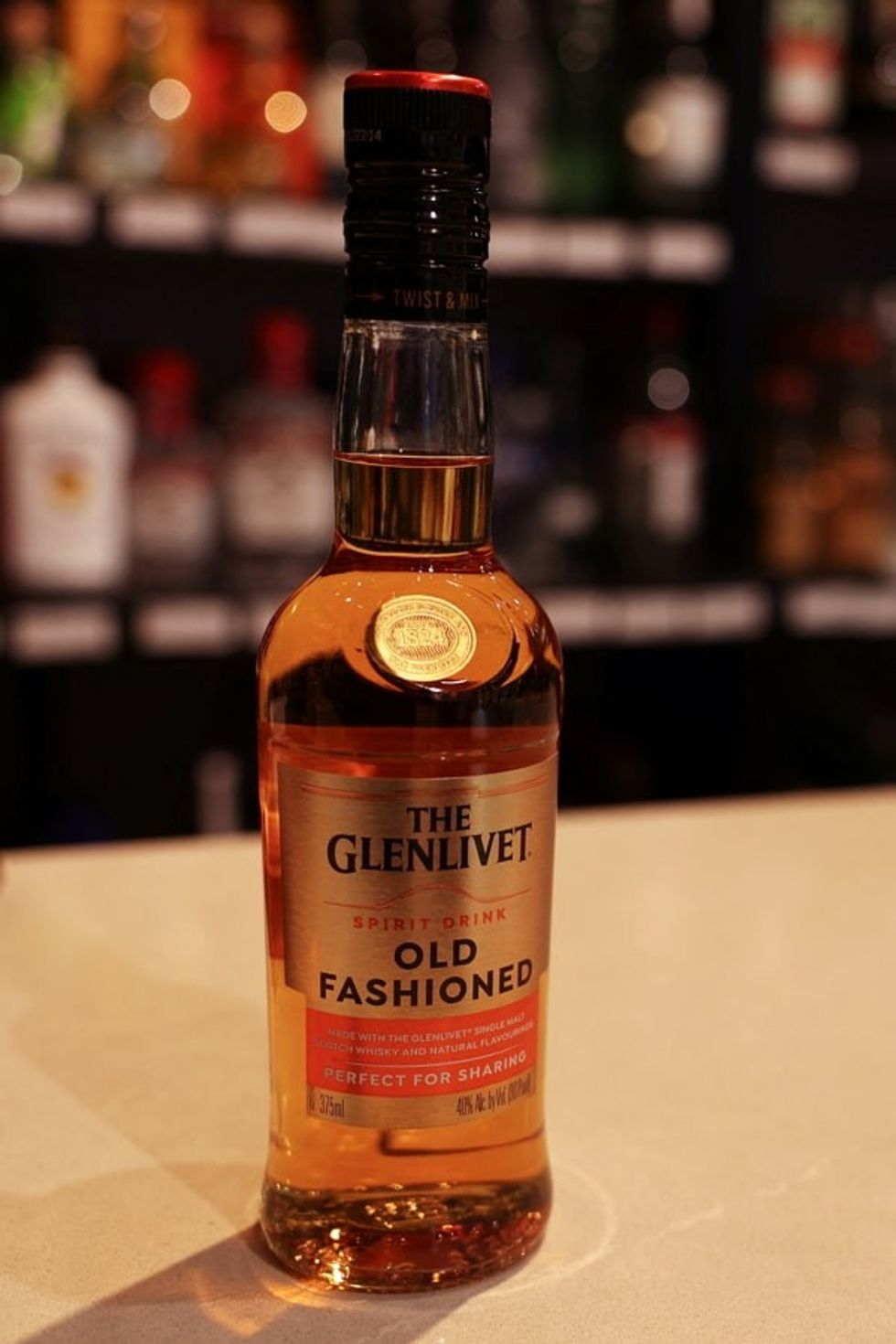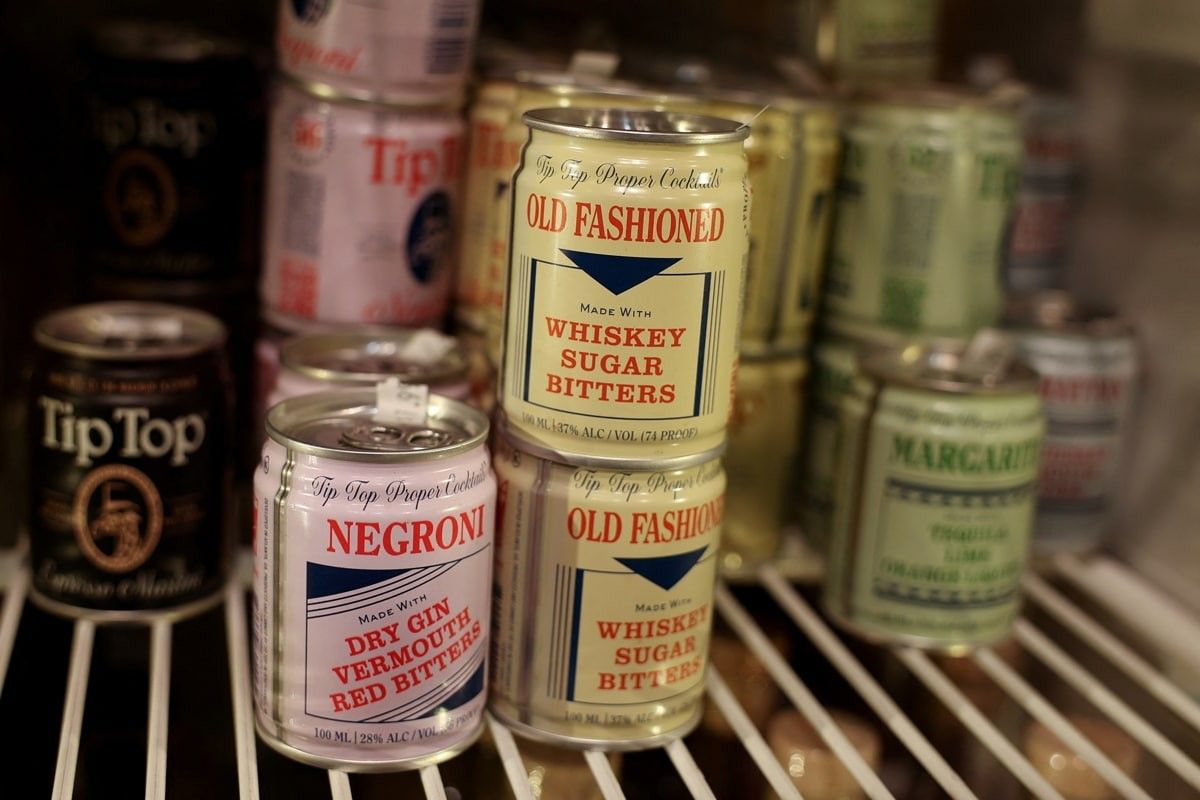Major distillers want American drinkers to sip their Old Fashioneds, Negronis and Espresso Martinis this holiday season. But no bartender is required: these cocktails come bottled.
Diageo and Pernod Ricard have both launched bottled cocktails in the US in recent months, hoping to tap into a trend that has flourished since the COVID-19 pandemic.
Unlike individual canned cocktails, the new bottled drinks can contain as much as 750 millilitres of booze. The companies hope that hosts will be pouring them at festive parties this year, and guests will bring them instead of wine.
Nylaya Corbin, a 22-year-old living in New York, bought a bottle of Diageo's Espresso Martini, based on its Ketel One vodka, when she was shopping for wine in November - and loved it. Corbin said it was "extremely strong" and better than versions she had tried in bars and restaurants.
"I actually haven't even ordered an Espresso Martini out since. I will just have it at home," said Corbin, who comes from Maryland. She said she also bought a bottle of Ketel One's Cosmopolitan cocktail for her birthday this month.
For some price conscious consumers, the bottled cocktails are a good money-saving option, amid a rise in the cost of living.
When Caroline Zatina, a 37-year-old mom from Charleston, South Carolina, saw them on sale for $20 (£15.6), she immediately started doing the math on how much she could save versus a bar.
"It's perfect for someone like me," Zatina said. "I love my cocktails, I have a sweet tooth and I'm on a budget."
Drinkers today are looking for quality, but also want their drinking experiences to be easy and cheap, said Ann Mukherjee, outgoing chief executive of Pernod Ricard North America. She steps down at the end of the year.
"They want to feel like they are a mixologist, but they want to do it as easily as taking out a beer from the fridge," she continued, adding the pandemic - which struck in early 2020 - taught people how much they could save by drinking at home.
The drinks companies say their products can match the quality of cocktails poured by professional bartenders for a fraction of the price.
But not everyone is convinced, especially those working in the hospitality sector. Bottled cocktails can be good quality, but can't replicate the bespoke experience and real craftmanship drinkers get in a bar, said Igor Zukowiec, founder of New York catering and mixology company Alchemiq.
"It takes away a little of the magic of bartending," he said.
Wonderful time of the year
Bottled cocktails steal market share from beer and wine, three industry executives from Diageo, Pernod Ricard and Beam Suntory told Reuters. Some consumers have defaulted to wine and beer in the past because they don't have the confidence, time or ingredients to mix a cocktail, two of the executives said.
The festive period is a key time of year to establishing a foothold in the fast-growing "ready-to-serve" cocktail market, they added. Major drinks companies have invested in holiday-themed marketing and advertising for their products.
Diageo, which makes Tanqueray gin and Johnnie Walker whisky, wants to become the market-leader in the category, its brand director Nikhil Shah said.
The company has set up sampling stations in stores and also promoted its range for the holidays via advertisements, influencer activities and events. It will add a new cocktail to its range in February, Shah said.

The opportunity is sizeable.
Ready-to-drink alcohol, which also spans things like canned cocktails and hard seltzers, is predicted to be worth $21.1 billion in the US alone by 2027, according to IWSR Drinks Markets Analysis.
That is up from $18.2 billion today, with the rise largely reflecting growth of more premium, expensive products and cocktails and long drinks.
That could accelerate a shift away from drinks like beer and wine in the US, which have long dominated moments when drinkers want an easy tipple.
The World Health Organisation (WHO) and other public health groups are turning their attention to alcohol after making gains in highlighting ill health caused by cigarettes. The WHO says alcohol is a causal factor in more than 200 diseases and conditions, including some cancers, liver cirrhosis and cardiovascular diseases. It has called for higher taxes globally.
"People want convenience"
Large bottles of pre-mixed drinks like Margarita or Pina Colada have made up the bulk of the "ready-to-serve" category for some time.
Pernod and Diageo's bottled cocktails, launched in the US in August and October respectively, are pricier. Pernod's Glenlivet Old Fashioned typically trades at $16.99 for a 375 milliliter bottle.
But overcoming consumer expectations that bottled cocktails sacrifice quality for quantity will be a challenge.
Right now, the category is lagging.
US unit sales of "ready-to-serve" cocktails grew just 0.1 per cent versus last year in the 52 weeks to Dec. 2, data from market researcher NIQ showed. There was an uptick during the holidays, with sales up 2.2 per cent in the four weeks to Dec. 2, versus a decline of 2.6 per cent last year.
But growth for certain types of cocktail was exploding by both measures, according to the data, with Bloody Mary, Martini and Negroni leading the charge.
Ready made cocktails provide venues without enough resources for full-blown mixology a way to offer a cocktail menu, said Lynnette Marrero, a New York-based mixologist who recently launched a line of bottled cocktails, Delola.
The category is growing fast, taking up more shelf space and also picking up in channels like airlines, which have historically only offered wine, beer or seltzers, said Zach Poelma, SVP of Supplier Strategy & Insights at Southern Glazer's Wine & Spirits, a top US spirits distributor.
Jim Beam whiskey maker Beam Suntory, the only large player to offer a bottled cocktail range in 2020, saw it grow by 70 per cent last year, said Jessica Spence, its president of North America.
The company, currently the market leader, plans to fend off competition by crafting new, localised cocktail mixes aimed at quickly meeting differing regional trends, she said.
Pernod also has more in the pipeline, according to Mukherjee.
"People want convenience," she said. "And they want convenient cocktails."
(Reuters)


